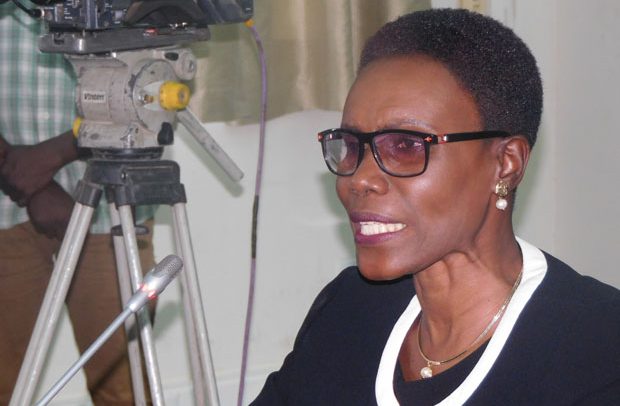Justice Avril Lovelace-Johnson at the vetting committee
Justice Avril Lovelace-Johnson, a Supreme Court nominee, has indicated that ‘judicial activism’ is very crucial in sealing loopholes in the statutes to meet the needs of the people.
She said that the interpretative functions of the judiciary must always be geared towards meeting the needs of the society, saying “Parliament passes the law and we in the judiciary interpret the law to suit the needs of the people.”
The nominee made the observation when she appeared before the Appointments Committee of Parliament on Monday for vetting.
She said her most regrettable action or judgement during her 28 years on the bench starting from the district court in 1991 was when she was sitting as High Court Judge in 2002 and had to hand a criminal a death sentence.
She said she regretted passing the death sentence … however, she said she was against death penalty.
The nominee was also of the strong conviction that Alternative Dispute Resolution (ADR) mechanism is the best way to resolve disputes between parties since, according to her, it is less expensive and saves a lot of time for the parties involved.
She told the committee that the perception of judges as being corrupt by members of the public is real but the opposite is the reality.
According to her, as a former Director of the Public Complaints and Court Inspectorate Unit of the Judicial Service of Ghana, there was a common trend in most of the complaints that came before her which were that judges were alleged to have taken bribes to rule against them.
She said when defendants mostly win their cases it does not sit well with plaintiffs who always accuse judges of taking bribes before giving judgements but according to her any good judge will never take a bribe before giving judgement.
By Thomas Fosu Jnr


